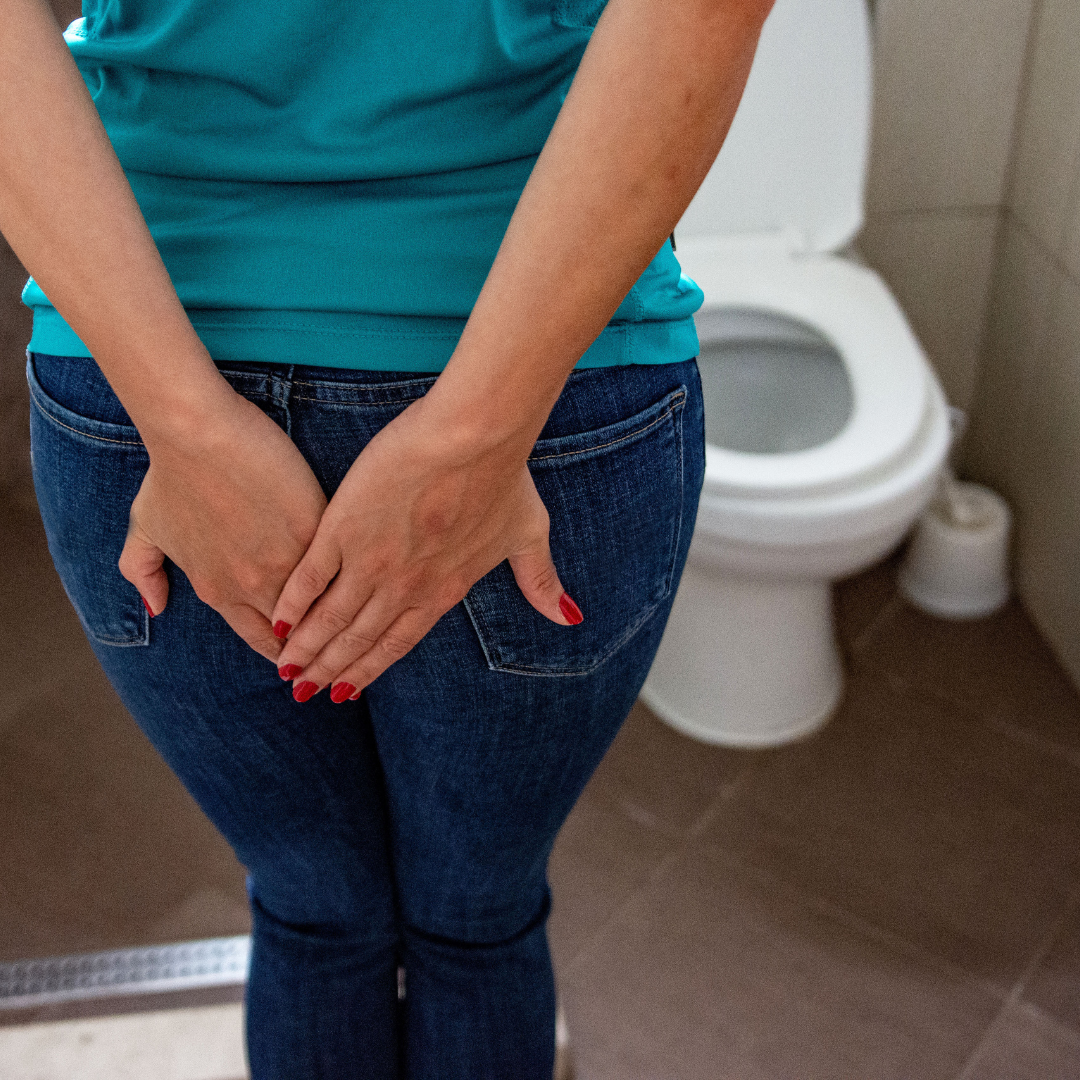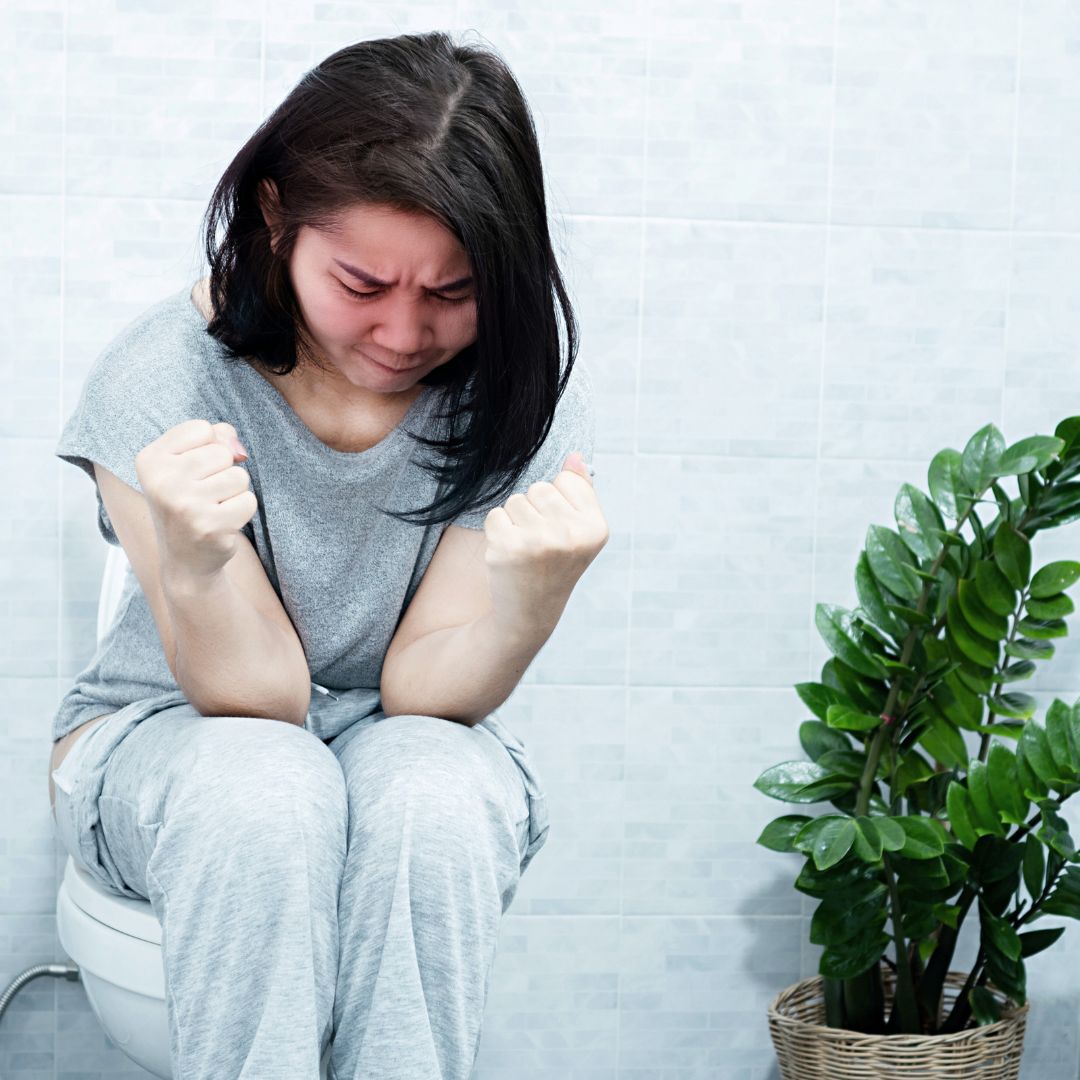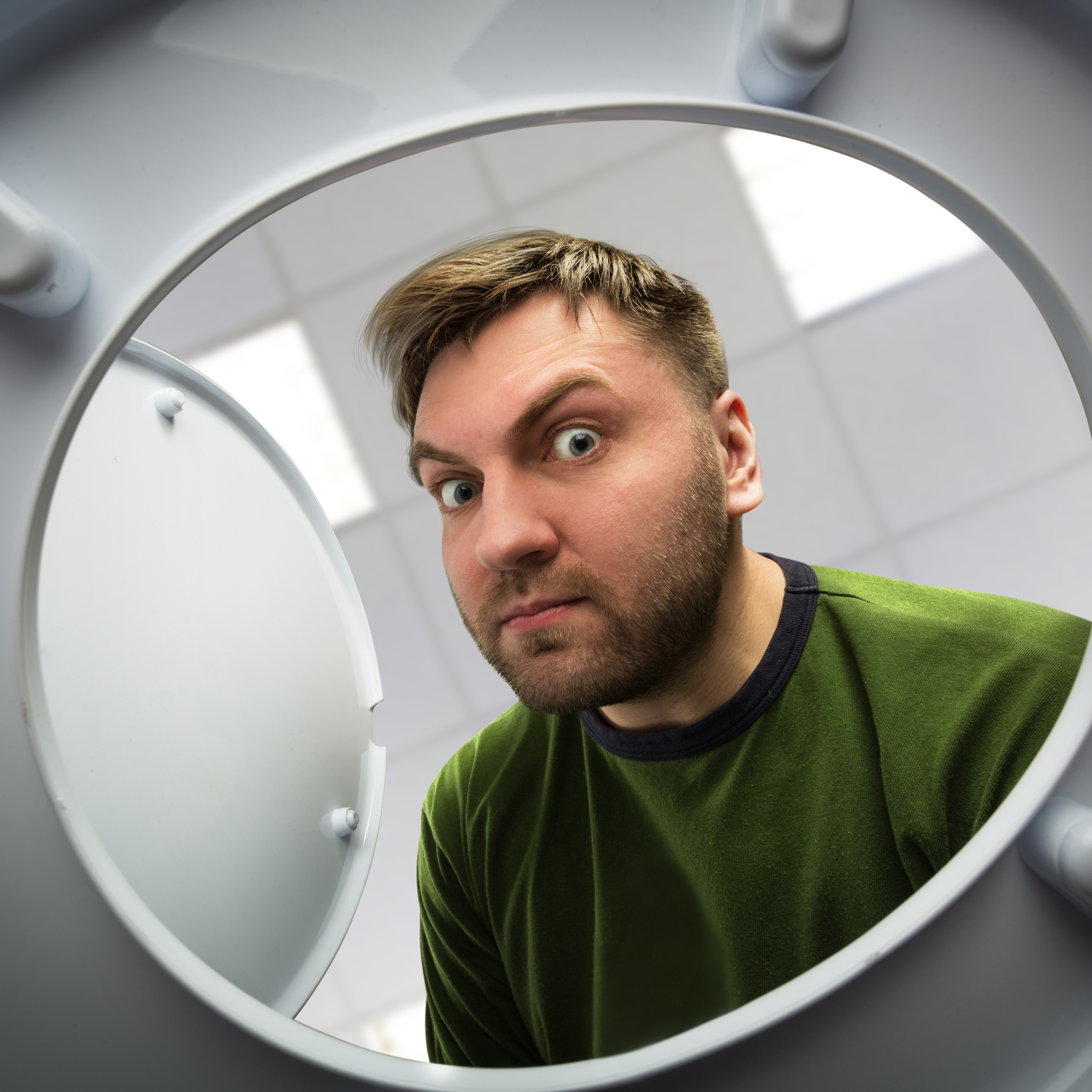Liquid Poop (Watery Diarrhoea): What Causes It and How Do You Treat It?

Liquid Poop (Watery Diarrhoea): What Causes It and How Do You Treat It?
Diarrhoea. It’s hard to spell and even harder to handle, but it doesn’t have to be impossible to treat.
When the runs send us running to the porcelain throne more than we'd like, we don't always have time to think about what’s causing the messy issue. In fact, a lot of the time we’re just sat with our head in our hands and a pain in the ass.
Jokes aside, diarrhoea can be uncomfortable, sometimes embarrassing, and can take a toll on our quality of life when we don’t know why the world is falling out of us. That’s why it’s important to know what can cause it, how we can treat it at home, and when it’s time to speak to a doctor. That way, we’re never left sat in a mucky sitch in the dark.
It’s time to face what’s going on inside our guts - let’s go back to basics with diarrhoea.
What Is Watery Diarrhoea?
Definition and typical duration
Diarrhoea is when your stool becomes watery and loose. This could be anything from light and fluffy stools with no clear outline, to full-on liquid. It’s not just about consistency though, it’s also frequency. If you’re going to the toilet more than 3 times a day, accompanied by runny stools, this is another indication of diarrhoea.
Learn more about different poop types in our Bristol Stool Chart article.
When it’s acute vs chronic
Typically, diarrhoea will resolve itself in a few days to a week. This is what most people will encounter, acute diarrhoea. However, sometimes things can stay watery and loose for much longer. If you’ve been experiencing loose stools for four weeks or longer, you’re most likely experiencing chronic diarrhoea and should chat to a GP to see what’s going on.
Common Causes of Watery Diarrhoea
Viral infections (gastroenteritis)
Gastroenteritis sounds a bit complicated, if we’re being frank, it’s a tummy bug, but that doesn’t make it any less horrid to go through. Infections like norovirus cause inflammation in the digestive tract, leading to a whole host of symptoms you’d rather avoid, like vomiting, diarrhoea, stomach cramps, fever and more.
Sadly, you’ll just have to wait this one out, with over-the-counter painkillers and lots of rest, this too shall pass.
Bacterial, parasitic, and travel‑related causes
Sometimes the most wonderful things in life are what bring us the greatest downfall. Eating contaminated food, swimming in or drinking contaminated water and more can cause things like E. coli, Salmonella, Giardia, food poisoning and traveller's diarrhoea.
These issues cause the body to flush itself out, leading to vomiting and diarrhoea which can last for several days. Again, this is just your body’s response, and it will usually resolve itself on its own. However, bland foods, drinking small amounts of fluids frequently and rest will help you recover faster.
Medications, antibiotics & antibiotic‑associated diarrhoea
Different medications can impact the gut in different ways. For example, many pain medications, antidepressants can cause inflammation and chemical imbalances in the gut, which impact gut motility (that’s how fast food moves through you). Medications like antibiotics can also throw off the balance in your gut.
When we take antibiotics to fight off bacteria, it can reduce the number of good bacteria in our guts. This means that bad bacteria can overgrow, causing diarrhoea and other not-so-nice digestive issues. Probiotics can often help restore the balance and keep that gut microbiome diverse and ready to tackle anything.
Food intolerances and malabsorption issues
Food intolerances, gut health issues and autoimmune diseases can have a real impact on the gut. Here are just a few:
-
Food intolerances: Food intolerances like lactose and gluten can cause diarrhoea when trigger foods are eaten. This is due to the gut not being able to process specific types of sugars, resulting in bloating, diarrhoea, constipation and stomach pain.
-
Irritable Bowel Syndrome (IBS): IBS, or disorders of the gut-brain interaction, can cause lots of issues, like bloating, stomach pain, constipation, or diarrhoea. This can be triggered by prolonged periods of stress, trigger foods and mental health.
-
Inflammatory Bowel Disease (IBD): One symptom that many people with IBD encounter is chronic diarrhoea and urgency. IBD is different to IBS and covers several conditions like Crohn's disease and ulcerative colitis. Essentially, the immune system starts attacking the bowel, leading to bouts of inflammation that can cause abdominal pain, immunodeficiency, hair loss, bleeding in the bowel and more.
Yellow/green diarrhoea: Bile acid malabsorption (BAM)
Now, you might be wondering, “why is my diarrhoea green/yellow?” Don’t panic, we’re here to explain.
As digestion happens, your liver and gallbladder release a yellowish, greenish acid called bile. This helps break down fats and other things we’ve eaten, to then be reabsorbed into the body. In some cases, especially when digestion is sped up or the small intestine isn't absorbing bile properly, bile can pass into the colon and cause yellow or green watery diarrhoea causing bile acid malabsorption.
Treatment Approaches for Diarrhoea
Rehydration and supportive care
It’s a given that when we have watery poop, we’ll be losing a lot of water in the process. It’s so important to ensure we’re drinking small amounts of water frequently throughout the day to rehydrate ourselves when we have the runs. If we don’t, we could experience severe dehydration, and that means a trip down to the doctor. So, be sure to keep hydration levels up where you can, and try adding the sugars, salts and vitamins you’ve lost along the way too.
Not sure where to start? A pharmacist can point you in the right direction of hydration products to add to your water.
Over‑the‑counter medications for diarrhoea
If you’re experiencing diarrhoea from IBS, IBD, or food intolerances, Loperamide (like Imodium) or bismuth subsalicylate (like Pepto-Bismol) may ease symptoms. However, when it comes to food poisoning or parasitic cases of diarrhoea, it’s best to avoid these medications that work to stop the bowel movements from happening.
Always speak with a pharmacist before using Loperamide/Pepto Bismol. They’ll usually recommend hydration powders like Dioralyte too, which can help replenish your liquids and electrolytes.
Dietary strategies: what is the BRAT diet?
While we’re experiencing watery poop, what we eat matters, and what we don’t eat matters even more. As things are explosive, we need to keep what we eat light and bland, so we don’t disrupt things further. The BRAT diet consists of four things: Bananas, Rice, Applesauce and Toast. These foods should help your gut get back to a steady state.
What we don’t eat matters too. Stay away from foods high in fat, this is hard to digest and can make matters worse. Keeping away from spicy foods, alcohol, and ultra-high processed foods will also help you recover faster. And as we all know, when it comes to diarrhoea, the sooner the better!
Fibre, fibre and more fibre
A lot of people hold the misconception that fibre will make your poop more liquid, because it helps move things along in the gut. Although partly true, there’s more to it. When we lack fibre, our stool can lose its structure, just collapsing into a liquid mess. However, by introducing a bit more fibre, it can start to bulk up our stool, helping it keep form and bring us back to a type 3 or 4 on the Bristol Stool Chart.
Lucy Allen, Pelvic Floor Specialist and Physiotherapist noted that “...making sure you're getting that right type of fibre in, trying to bulk that stall up a little bit more, and using something like psyllium husk that's a natural fibre supplement” can help bulk the stool up.
Treating underlying causes
Managing underlying causes of diarrhoea can feel difficult and nuanced, as there’s never usually a ‘one treatment fits all’ approach. Some things, like intolerances, may be easier to treat, with specific diet restrictions. However, when it comes to IBS, IBD or other bowel conditions, there can be longer, more complicated treatment pathways.
That said, information is poo-wer, and only good can come from understanding what’s going on in your gut. That way, we can handle our health in the best way possible.
When to Seek Medical Help
Warning signs
Uncontrollable diarrhoea can be worrying, especially as we just have to give in to the nasty things our bodies are doing. However, as poorly as diarrhoea can make you feel, it’s important to know the warning signs of when something more sinister could be at hand.
-
Duration & frequency: If you’ve been experiencing diarrhoea for 7 days or more and been using the toilet more than ten times a day, it’s a good idea to take a trip to your doctor. They’ll be able to examine you and see what’s what.
-
Dehydration: If you lose too much water from diarrhoea, it can have a huge impact on hydration levels. If you find yourself experiencing headaches, dizziness or light-headedness, or urinating less than usual, with dark coloured urine, you may be experiencing severe dehydration.
-
Blood or black stools: If you notice that you have watery diarrhoea that’s black in colour and you’re not taking iron supplements, it might be that there is a bleed happening higher up in the digestive tract. If this continues for a few days, a trip to the GP is in order. Blood in your stool for longer than a couple of weeks is also a good reason to have a chat with a medical professional.
-
Severe pain: If you’re experiencing abdominal pain and cramps with diarrhoea as a one-off event, this is likely to be due to a stomach bug, or something similar. However, if you’re experiencing chronic diarrhoea, along with abdominal pain, it could be something worth getting checked out, as food intolerances, IBS, IBD and other conditions can manifest in this way.
What a doctor might do
Depending on what’s causing your diarrhoea, your doctor could recommend anything from rest and water to a few more diagnostic tests. It really depends on what they suspect might be going on in there.
If they think there could be a little blood in your stool, they might ask you to do a stool test, where you provide a sample of your poop for them to look at. They might also want to run allergy tests to see if that’s what’s causing the issue on the tissue. They could take some blood, they might want to do some imaging (a colonoscopy – a camera used to look inside your bowel).
The most important thing is that doctors hear this sort of thing every single day, and it’s absolutely nothing to be embarrassed about. A doctor’s job is to help you with your health, and bowel health is no exception! We implore you to take ownership of your health, and take the leap of faith, especially when diarrhoea is impacting your quality of life. You owe it to yourself to care and take action.
Prevention & Final Takeaways
Prevention strategies
As far as prevention goes, we can try to avoid the bacterial causes of diarrhoea with good hygiene. Always washing our hands after handling raw meat, storing food in the right conditions to control bacteria, washing your hands after using the toilet, watching what you eat and drink when travelling, and more. This can help to prevent catching anything that will give you the dreaded liquid poop.
Final takeaways
Diarrhoea can be frustrating, worrying, and it can really impact our quality of life. That's why it’s so important to act when you find that things aren’t right below the waist. That means understanding what’s normal for you (checking your poop), seeing a doctor at the right time, and looking after yourself.
A huge thing that worries people who experience chronic diarrhoea is that they won’t be able to find a toilet or keep clean in public when they’re out and about. That’s why we created the Wype Mini, the perfect way to carry a clean feeling in your bag, or even your pocket. Enjoy discreet freshness wherever you are, with our soothing and moisturising toilet paper gel.
Stay confident when you’re out and about with Wype.

